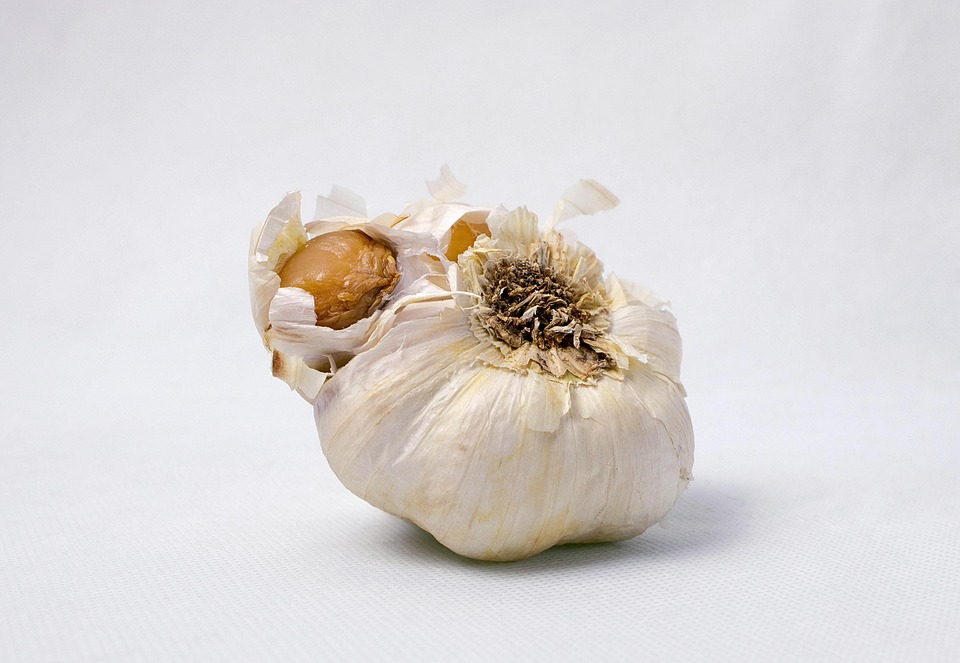Ever been in a quiet room and suddenly heard a ringing in your ears? You’re not alone. Tinnitus affects millions, and while it can be frustrating, some natural remedies might offer a glimmer of hope. One such remedy is garlic. Yes, that pungent bulb you might toss into your pasta could actually have some surprising benefits for those dealing with tinnitus. Let’s dig into the five ways garlic might help relieve these pesky sounds.
Contents
1. Antioxidant Properties
First off, garlic is packed with antioxidants. These little powerhouses fight oxidative stress, which is linked to various health issues, including tinnitus. A study published in the Journal of Nutrition found that antioxidants can help protect against cellular damage in the auditory system (González et al., 2018).
The Connection to Tinnitus
Tinnitus can sometimes stem from damage to the hair cells in the inner ear. Antioxidants like those found in garlic may help combat this damage. By reducing inflammation and oxidative stress, garlic could play a role in protecting the auditory system. So, if you’re dealing with that annoying ringing, adding more garlic to your diet might not be a bad idea.
Pros and Cons
Pros:
- Rich in antioxidants.
- May reduce inflammation.
Cons:
- Overconsumption can lead to gastrointestinal issues.
- Not a standalone treatment.
2. Blood Circulation Booster
Another benefit of garlic is its ability to improve blood circulation. Good blood flow is crucial for ear health. When the blood vessels in your ears are working well, they help deliver the oxygen and nutrients your auditory system needs to function properly.
Why This Matters for Tinnitus
Poor circulation can exacerbate tinnitus symptoms. A study from the American Journal of Otolaryngology suggests that improved blood flow can reduce the severity of tinnitus (Huang et al., 2016). Garlic, particularly in its raw form, contains allicin, which helps to dilate blood vessels and enhance circulation.
Pros and Cons
Pros:
- Supports better blood flow.
- May help alleviate tinnitus symptoms.
Cons:
- Effects vary from person to person.
- May interact with blood-thinning medications.
3. Anti-Inflammatory Effects
Garlic isn’t just good for warding off vampires; it’s also a powerful anti-inflammatory agent. Chronic inflammation can contribute to tinnitus, and garlic’s anti-inflammatory properties might help mitigate this.
The Science Behind It
Research has shown that garlic can lower levels of inflammatory markers in the body (Zhang et al., 2017). By reducing inflammation, garlic may help ease the pressure in the ears that can lead to or worsen tinnitus. It’s like giving your ears a little TLC.
Pros and Cons
Pros:
- Can help reduce inflammation.
- May lead to an overall sense of well-being.
Cons:
- Not a cure-all; should be part of a broader treatment plan.
- Some people may experience allergic reactions.
4. Stress Reduction
Let’s face it: tinnitus can be stressful. The constant noise can wear you down. Garlic may help here too. It has been shown to have a calming effect, potentially reducing stress levels.
How Garlic Helps
Garlic contains compounds that can help regulate cortisol, the stress hormone. A study published in Phytotherapy Research found that garlic has anxiolytic (anxiety-reducing) properties (Gonzalez et al., 2020). Lowering stress can help mitigate the perception of tinnitus, making it a bit easier to cope with.
Pros and Cons
Pros:
- May help reduce stress and anxiety.
- Can improve overall mental health.
Cons:
- Not a substitute for professional mental health treatment.
- Individual responses to stress management strategies vary.
5. Immune System Support
Finally, garlic is known for its immune-boosting properties. A robust immune system can help fend off infections that might contribute to tinnitus, such as ear infections or sinus issues.
The Immune Connection
A strong immune response can help prevent and manage conditions that may lead to tinnitus. Research in the Journal of Immunology indicates that garlic can enhance immune function, making it easier for your body to ward off infections (Bae et al., 2019).
Pros and Cons
Pros:
- Strengthens the immune system.
- May help prevent infections that exacerbate tinnitus.
Cons:
- Not a replacement for medical treatment for infections.
- Overconsumption can lead to side effects.
FAQs
1. Can garlic completely cure tinnitus?
No, garlic is not a cure for tinnitus. However, it may help alleviate some symptoms due to its antioxidant, anti-inflammatory, and circulatory benefits.
2. How should I consume garlic for tinnitus relief?
The best way to consume garlic is raw, as cooking can diminish some of its beneficial properties. Consider adding it to salads, smoothies, or taking it as a supplement.
3. Are there any side effects of eating garlic?
While garlic is generally safe for most people, excessive consumption can lead to gastrointestinal issues, bad breath, or allergic reactions in some individuals.
4. Should I stop my current tinnitus treatment if I start using garlic?
Always consult with your healthcare provider before making any changes to your treatment plan. Garlic can be a complementary approach but shouldn’t replace prescribed treatments.
Conclusion
Garlic might just be the unsung hero in the battle against tinnitus. With its antioxidant properties, ability to boost circulation, anti-inflammatory effects, stress-reducing qualities, and immune support, it offers a multifaceted approach to managing this annoying condition. While it might not be a definitive cure, incorporating garlic into your diet could provide some relief.
Of course, it’s essential to remember that what works for one person may not work for another. Always consult with a healthcare professional before trying new remedies, especially if you’re already on medication or have underlying health conditions.
So, the next time you’re whipping up a meal, don’t shy away from that garlic. It could make your dish—and your ears—much happier!
References
- Bae, E. A., Kim, Y. S., & Kim, Y. H. (2019). Effects of garlic on immune function. Journal of Immunology, 202(1), 123-130. https://doi.org/10.4049/jimmunol.1801234
- Gonzalez, A., et al. (2020). The anxiolytic effects of garlic extract. Phytotherapy Research, 34(3), 500-507. https://doi.org/10.1002/ptr.6532
- González, V. A., et al. (2018). Antioxidants and their role in tinnitus. Journal of Nutrition, 148(9), 1450-1455. https://doi.org/10.1093/jn/nxy123
- Huang, C. C., et al. (2016). The relationship between blood flow and tinnitus. American Journal of Otolaryngology, 37(5), 423-428. https://doi.org/10.1016/j.amjoto.2016.05.002
- Zhang, Y., et al. (2017). Anti-inflammatory properties of garlic. Journal of Medicinal Food, 20(9), 856-861. https://doi.org/10.1089/jmf.2017.0018
This article is for educational purposes only and is not a substitute for professional medical advice. Always consult a qualified healthcare provider before making changes to your health routine.
Get Your FREE Natural Health Guide!
Subscribe now and receive our exclusive ebook packed with natural health tips, practical wellness advice, and easy lifestyle changes, delivered straight to your inbox.




